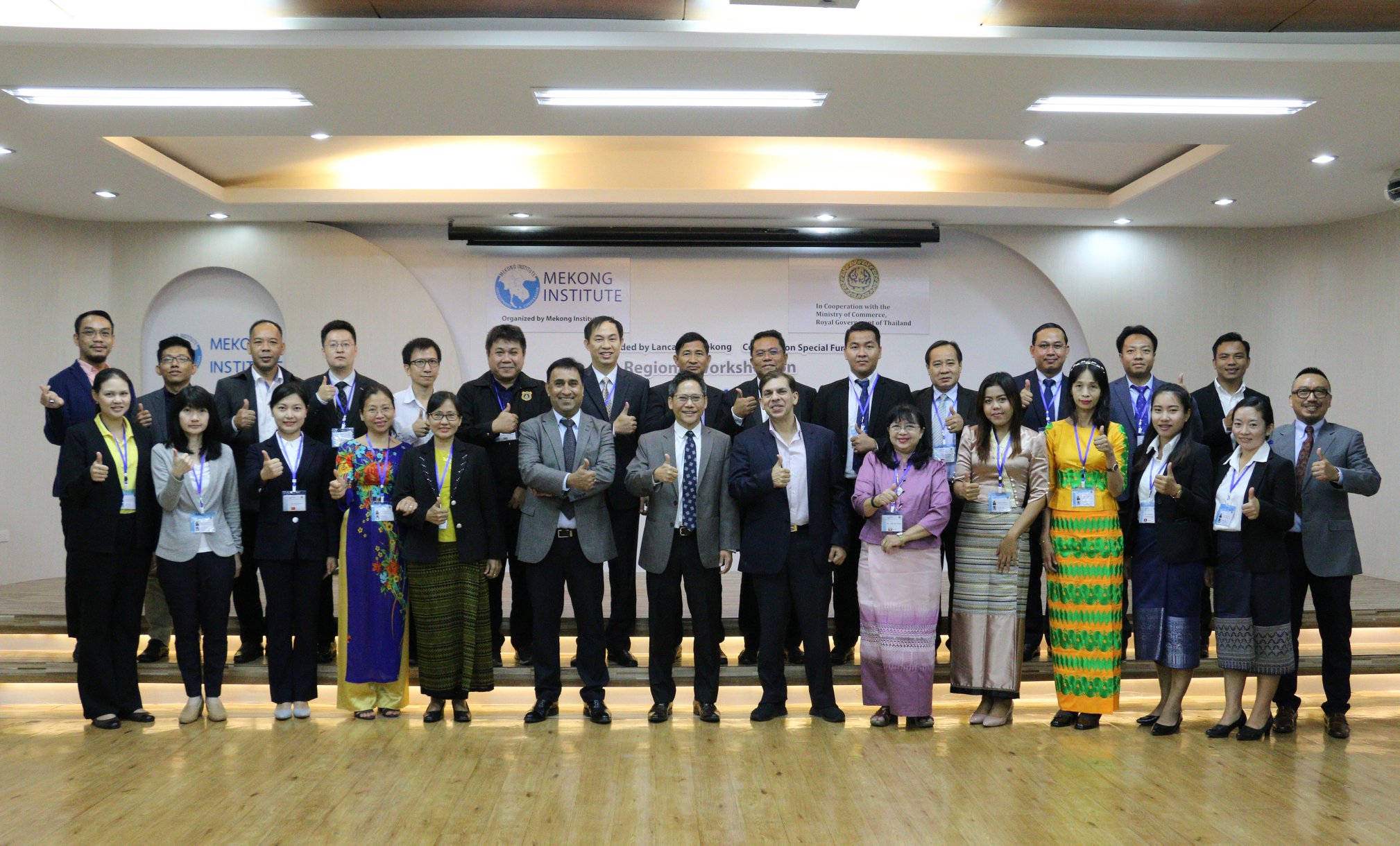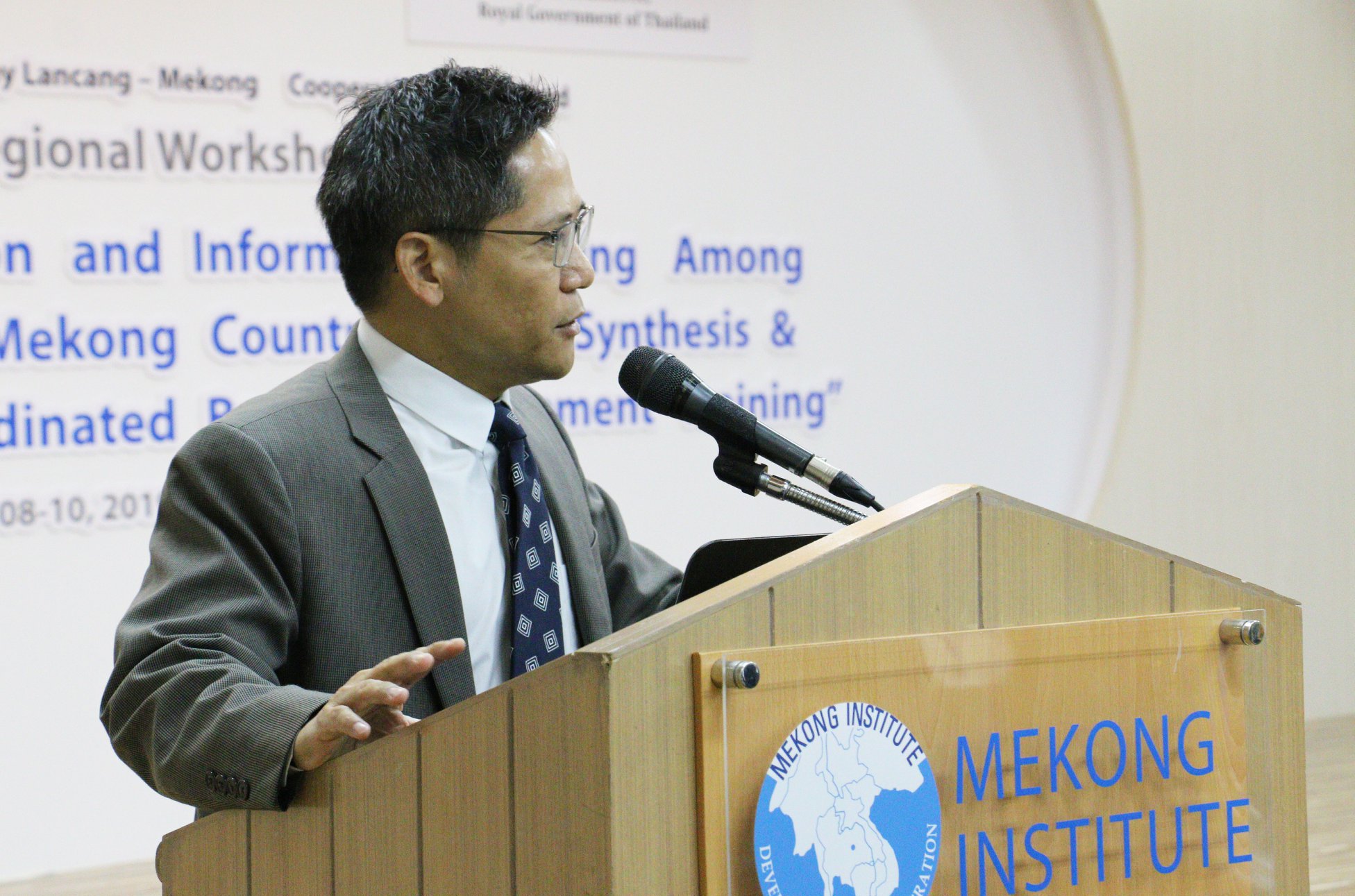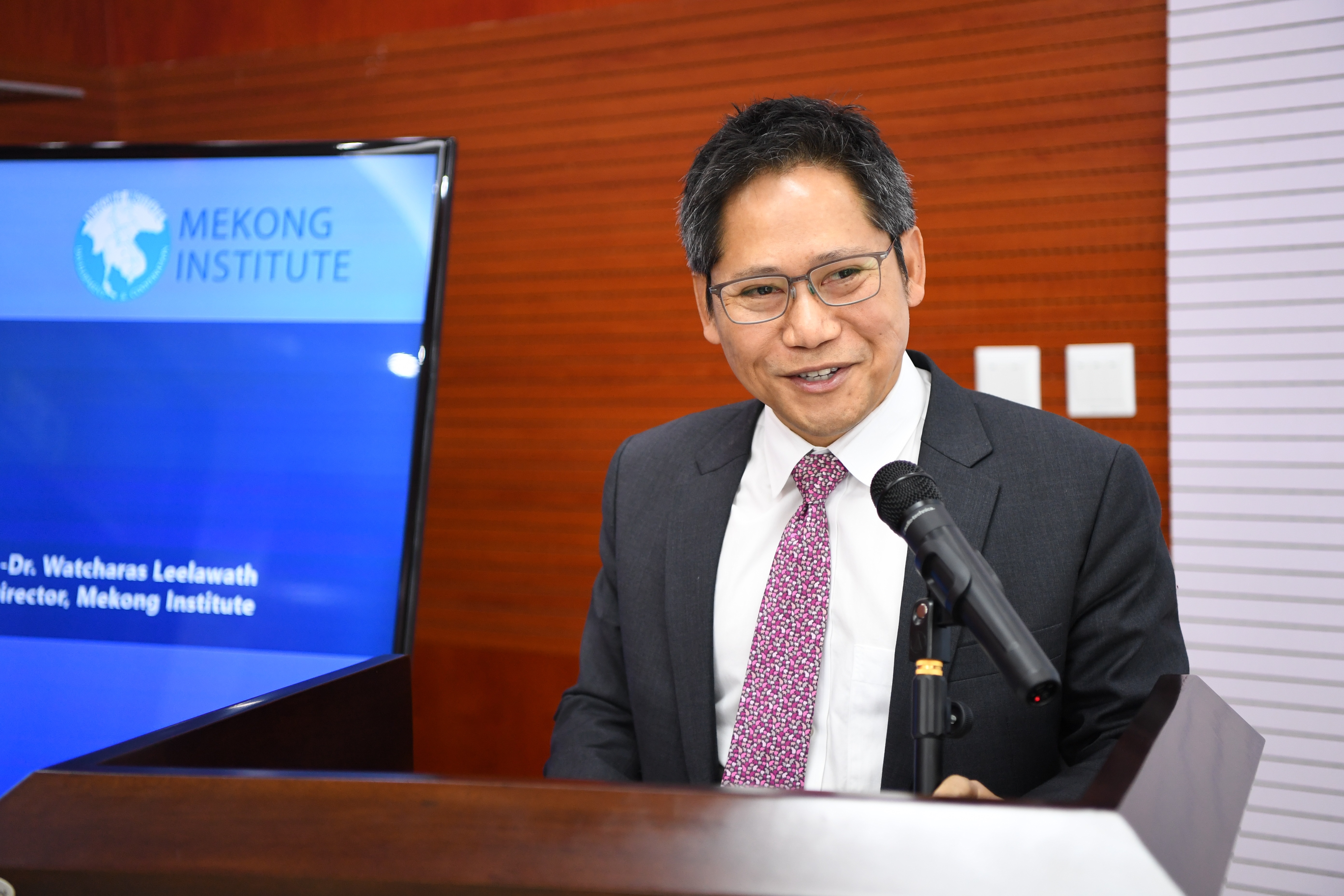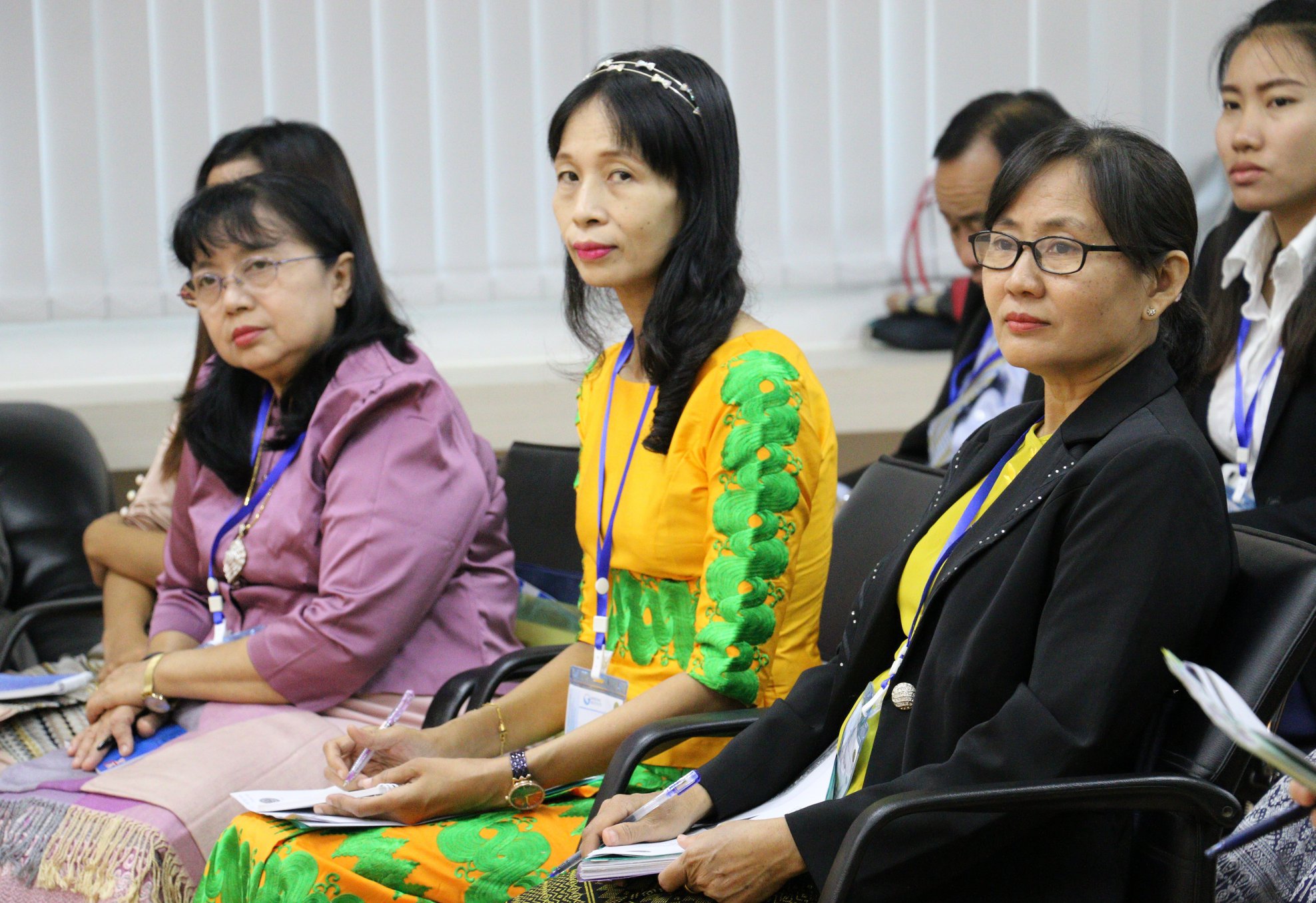Regional Workshop Underscores SEZ Development and Coordinated Border Management for Enhanced Connectivity in Lancang-Mekong
July 12, 2019
Mekong Institute (MI), in collaboration with the Ministry of Commerce of Thailand, conducted a regional workshop on Business Connection and Information Sharing Among SEZs in Lancang-Mekong (LM) Countries Cum Synthesis & Evaluation of Coordinated Border Management (CBM) Training on July 8-10, 2019 in Khon Kaen, Thailand. The workshop is a joint activity of the LM Special Fund Projects on Joint Development of SEZs in the LM Countries and Upgrading Border Facilitation for Trade and Logistics Development.
The workshop was attended by 19 participants from P.R. China, Cambodia, Lao PDR, Myanmar, Thailand and Vietnam, including representatives from Ministries of Commerce, Planning and Investment, Agriculture and Forestry, Board of Investment, Customs Departments, one stop service (OSS) centers and special economic zone (SEZ) policy development and monitoring agencies.
In his opening remarks, Dr. Watcharas Leelawath, MI Executive Director, highlighted existing key challenges facing regional trade including high logistics cost, lengthy customs procedures and asymmetric information despite the favorable trade tariffs under regional free trade agreements. For this reason, he emphasized the importance of business connection and information sharing among economic operators in addressing these issues. Drawing on SEZs in the LM countries under the project framework, he stated that such mechanism is essential for joint development of SEZs and streamlined functions of OSS and quarantine services for boosting trade and logistics development in the region.
The regional workshop also aimed to review learning from the CBM training program and results of action plan implementation by training participants; discuss the regional SEZ online platform for promoting investment, trade, and logistics development; discuss the possibilities of developing joint OSS and integrated quarantine service centers between SEZs (business models) in the six LM countries as well as propose solutions and measures to develop online functions to support the system. Likewise, the workshop participants discussed and presented issues on practical measures and solutions for developing and implementing joint OSS and integrated quarantine service centers synchronized with SEZ online platforms in LM countries.









